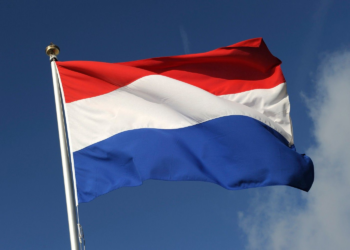The Netherlands has confirmed the return of 113 Benin Bronzes to Nigeria, with the transfer set to take place on Wednesday.
These artworks, which were taken by British soldiers during a raid on the royal palace in Benin City in 1897, will now be returned to their home country after being held in various locations around the world.
According to Dutch News, the Benin Bronzes were originally seized during the British colonial campaign and have since been dispersed across museums and private collections globally, including institutions such as the British Museum in London and the Metropolitan Museum of Art in New York.
The items currently being returned by the Netherlands were primarily kept at the Wereldmuseum in Rotterdam, a museum dedicated to world heritage.
Return of artifacts
Culture Minister, Eppo Bruins confirmed the return of the bronzes, stating that the restitution would help address a historical wrong that continues to impact Nigeria today.
“This restitution is contributing to the restoration of a historic injustice that is still felt today,” said Bruins. “Heritage is essential for telling and experiencing the history of a country and its communities. The Benin Bronzes are indispensable to Nigeria, and it is right that they are being returned.”
The bronzes, among the most significant cultural artifacts in Nigerian history, have long been a symbol of colonial exploitation. Their return has been a longstanding demand from Nigeria and many other countries whose cultural properties were looted during colonial times.
Historic significance of the return
Director general of Nigeria’s National Museums Commission, Olugbile Holloway, traveled to Rotterdam to sign the transfer documents. Holloway noted that the return of these bronzes represents the largest restitution of antiquities looted by British forces in 1897.
“We hope that this will serve as a positive example for other countries worldwide in the restitution of lost or looted antiquities,” Holloway remarked.
The event, as stated, marks a step in the ongoing global conversation about the repatriation of collected cultural property. The return of the Benin Bronzes is seen as a precedent for similar actions to be taken in other parts of the world where colonial-era loot is still held in foreign institutions.
Commitment to restitution
This move by the Netherlands is the fifth time the country has decided to return collected art following the recommendations of a special committee. The committee, established to review cases of colonial-era looting, has also guided the restitution of items to Sri Lanka, India, and Indonesia.
The Wereldmuseum in Rotterdam, which houses around 375,000 objects, many of which have colonial connections, has been a focal point for this restitution process. The museum, which resulted from the merger of the Tropenmuseum in Amsterdam, the Afrika Museum in Berg en Dal, and the Museum Volkenkunde in Leiden, has become a key institution in addressing the legacy of colonialism through the return of cultural property.
Next steps in repatriation
The Netherlands’ return of the Benin Bronzes is part of a broader global trend of countries and institutions rethinking their collections and the colonial history behind them, reports inform.
As more countries seek the return of their looted heritage, this act of restitution sets a potential model for others to follow, furthering the cause of cultural preservation and historical reconciliation.






















